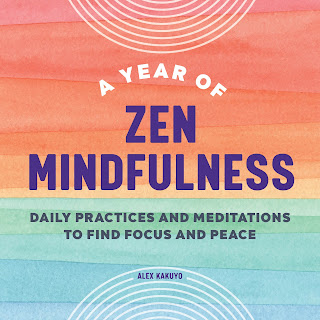A student went to his Zen teacher and found him working in the garden. The teacher greeted his student and asked, "How is Buddhism in the south?"
The student replied, "There is much discussion."
The Zen teacher paused a moment, and then he said, "Come help me plant radishes in the garden."
The student asked, "How will that help the world?"
The Zen teacher replied, "What do you call the world?"
When I was a young man, I didn't make time for what most people would call "domestic duties". Cooking, cleaning, making the bed; these tasks seemed like a waste of time at best, and they were beneath me at worst.
I looked at all the suffering in the world, and my unmade bed seemed insignificant in comparison.
I wanted to feed hungry children. I wanted pull plastic out of the ocean. I wanted to rescue the animals being tortured in factory farms.
I imagine the student in the koan shared my concerns. "There is much discussion," is a polite way of saying, "Everything is a freaking mess." And while we'll never know exactly what he was so worried about. There's a good chance that his country was plagued by war, famine, and political unrest that's similar to what we experience today.
In the face of so much madness doing little things to care for ourselves and others seems unimportant.
But the Zen teacher in the story understood something, that we often forget. As Buddhists, when we take the vow to end suffering for all sentient beings, that doesn't just include big, in your face, world-ending drama.
That also includes the suffering of a hungry pet, a lonely neighbor, or a partner who needs to vent after a bad day. But because we are greedy; for status, for attention, for a cool story to tell our friends, we turn away from the mundane suffering of life in the hope that a bigger, more impressive problem will appear.
Part of the issue is that we see worldly problems as being bigger and more important than our own. That's why the Zen teacher asked his student, "What do you call the world?"
If we understand that we are not separate from the world, then we understand that solving problems in our own lives makes life better for the people who share the world with us.
Our society is better off if there is one more clean kitchen in the world. Our communities are better off if there is one more yard that's well cared for. And our homes are better off if there is one more neatly made bed.
If we understand that we are not separate from the world, we understand that saving the world is as easy as saving ourselves. And the simplest way to do that is to run headlong towards the suffering in our lives.
When we face it boldly, unapologetically. When we don't turn away in the moments where the toilet needs to be cleaned, the kids need to be fed, or the bills need to be paid, we make our small part of the world better than it was before.
And in the same way that planting flowers in a garden bed makes the entire lawn more beautiful, fixing the problems of our household lessens the suffering of our families, our communities, and the entire planet.
Saving the world is hard, but we can start by making the bed.



Comments
Post a Comment